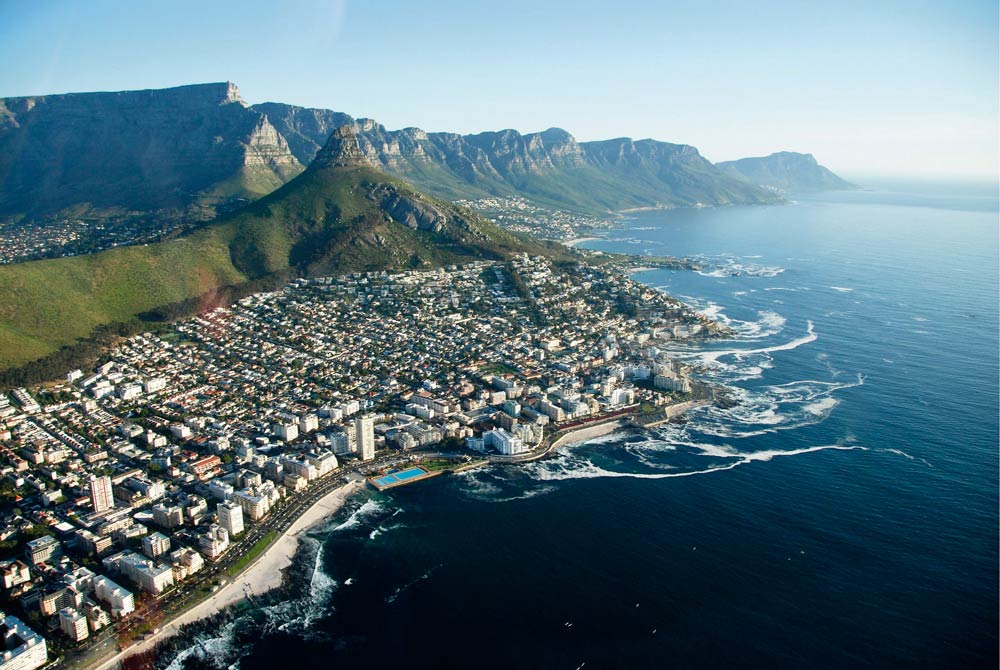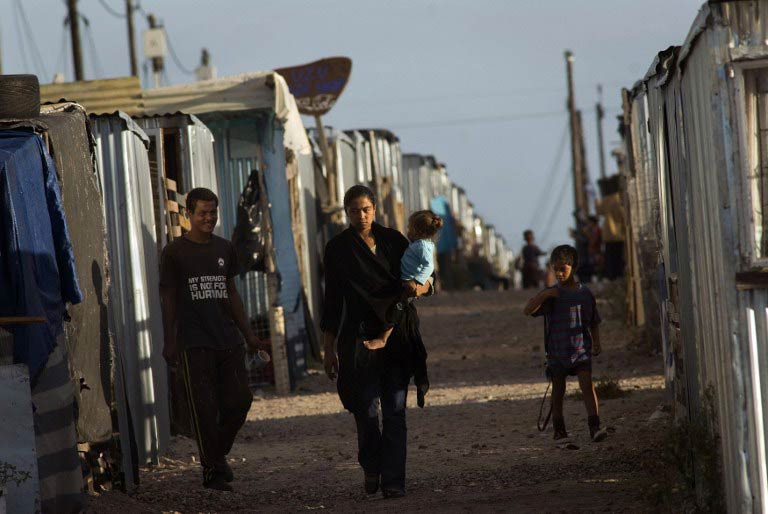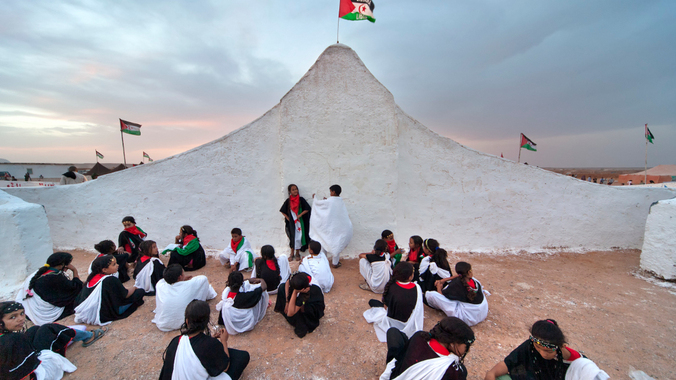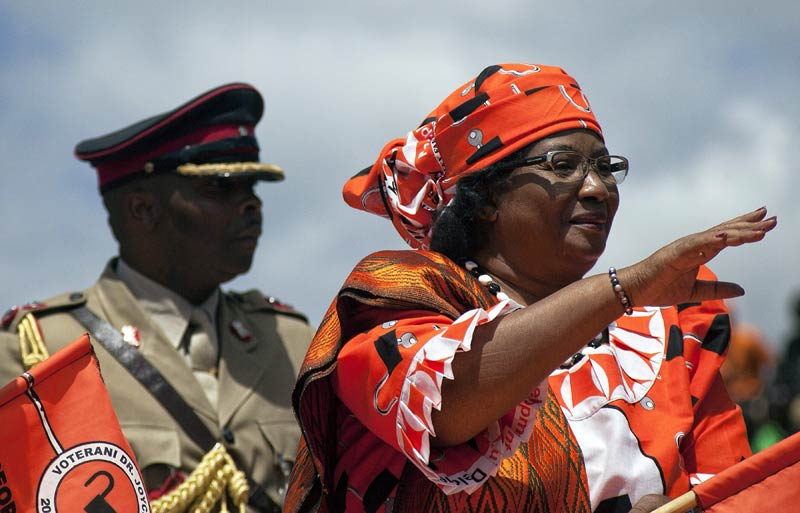A doctor is to stand trial in Egypt on charges of female genital mutilation on Thursday, the first case of its kind in a country where FGM is illegal but widely accepted.
Activists warned this week that the landmark case was just one small step towards eradicating the practice, as villagers openly promised to uphold the tradition and a local police chief said it was near-impossible to stamp out.
Raslan Fadl, a doctor in a Nile delta village, is accused of killing 13-year-old schoolgirl Sohair al-Bata’a in a botched FGM operation last June. Sohair’s father, Mohamed al-Bata’a, will also be charged with complicity in her death.
Fadl denies the charges, and claims Sohair died due to an allergic reaction to penicillin she took during a procedure to remove genital warts.
“What circumcision? There was no circumcision,” Fadl shouted on Tuesday evening, sitting outside his home where Sohair died last summer. “It’s all made up by these dogs’ rights people [human rights activists].”
In the next village along, Sohair’s parents had gone into hiding, according to their family. Her grandmother – after whom Sohair was named – admitted an FGM operation had taken place, but disapproved of the court case.
“This is her destiny,” said the elder Sohair. “What can we do? It’s what God ordered. Nothing will help now.”
According to Unicef, 91% of married Egyptian women aged between 15 and 49 have been subjected to FGM, 72% of them by doctors, even though the practice was made illegal in 2008. Unicef’s research suggests that support for the practice is gradually falling: 63% of women in the same age bracket supported it in 2008, compared with 82% in 1995.
But in rural areas where there is a low standard of education – like Sohair’s village of Diyarb Bektaris – FGM still attracts instinctive support from the local population, who believe it decreases women’s appetite for adultery.
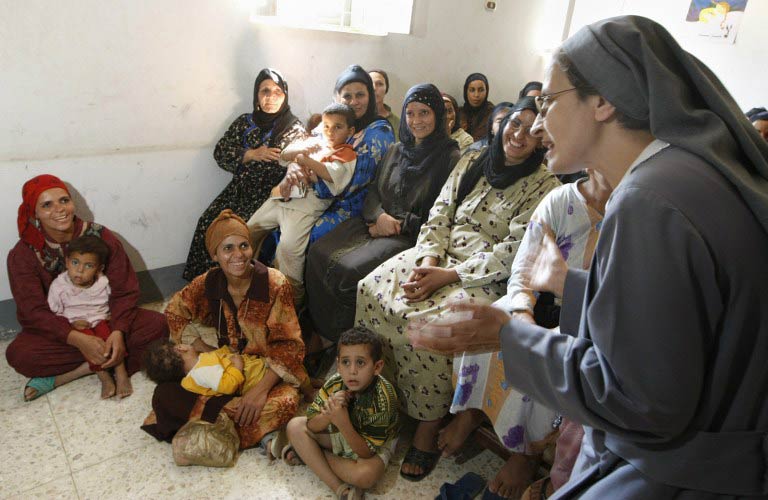
‘The law won’t stop anything’
“We circumcise all our children – they say it’s good for our girls,” Naga Shawky, a 40-year-old housewife, told the Guardian as she walked along streets near Sohair’s home. “The law won’t stop anything – the villagers will carry on. Our grandfathers did it and so shall we.”
Nearby, Mostafa, a 65-year-old farmer, did not realise that genital mutilation had been banned. “All the girls get circumcised. Is that not what’s supposed to happen?” said Mostafa. “Our two daughters are circumcised. They’re married and when they have daughters we will have them circumcised as well.”
Local support for Fadl, who is also a sheikh [elder] in his village mosque, remains high. “Most people will tell you he is a very good man: don’t harm him,” said Reda el-Danbouki, the founder of the Women’s Centre for Guidance and Legal Awareness, a local rights group that was the first to take up Sohair’s case. “If you asked people about who is the best person to do this operation, they would still say: Dr Raslan [Fadl].”
Most villagers said they thought the practice was prescribed by Islamic law. But female genital mutilation is not mentioned in the Qur’an and has been outlawed by Egypt’s grand mufti, one of the country’s most senior Islamic clerics. It is also practised in Egypt’s Christian communities – leading activists to stress that it is a social problem rather than a religious one.
“It’s not an Islamic issue – it’s cultural,” said Suad Abu-Dayyeh, regional representative for Equality Now, a rights group that lobbied Egypt to follow through with Fadl’s prosecution. “In Sudan and Egypt the practice is widespread. But in most of the other Arab countries – which are mostly Muslim countries – people don’t think of it as a Muslim issue. In fact, there has been a fatwa that bans FGM.”
Doctors
Campaigners hope Sohair’s case would discourage other doctors from continuing the practice. But villagers in Diyarb Bektaris said they could still easily find doctors willing to do it in the nearby town of Agga, where practitioners could earn up to 200 Egyptian pounds (roughly £16.70) an operation. “If you want to ban it properly,” said Mostafa, the farmer, “you’d have to ban doctors as well.”
Up the road in Agga, no doctor would publicly admit to carrying out FGM operations, and said the law acted as a deterrent. But one claimed FGM could be morally justified even if it caused girls physical or psychological discomfort.
“It gives the girl more dignity to remove [her clitoris],” said Dr Ahmed al-Mashady, who stressed that he had never carried out the operation but claimed it was necessary to cleanse women of a dirty body part.
“If your nails are dirty,” he said in comparison, “don’t you cut them?”
A few hundred metres away, sitting in his heavily fortified barracks, the local police chief agreed the practice needed to end. But Colonel Ahmed el-Dahaby claimed police could not work proactively on the issue because FGM happened in secret. He also said they were held back by the nuances of the Egyptian legal system – something that would surprise those who argue police officers have readily contravened due process in other more politicised cases.
“It’s very hard to arrest a doctor,” said Dahaby. “Why? You don’t know when exactly he is going to do this operation. In order to arrest him legally you have to have the papers from the prosecutor, and only then can you go. But you don’t know when the operations will take place, so you have to catch them in the act or it has to be reported by the father. And that’s difficult because the father will deny what happened.”
Sohair’s case
In Sohair’s case, her family did initially testify that she died after an FGM operation but then changed their testimony a few days later, leading the case to be closed. It was only reopened following a triple-pronged pressure campaign led by Reda el-Danbouki, Equality Now and Egypt’s state-run National Population Council.
Thursday’s hearing will likely be short and procedural. In subsequent sessions, Sohair’s family is expected to waive the manslaughter charges against Fadl, after Dahaby said the two sides reached a substantial out-of-court compensation agreement.
But the family has no say over the FGM charges levelled at both Fadl and Sohair’s father – and the state will continue to seek a conviction against them both. But whether such a result will serve as a major deterrent against FGM remains to be seen.
For Equality Now’s Suad Abu-Dayyeh, the answer is a systematic educational programme that would see campaigners frequently visit Egypt’s countryside to start a conversation about a topic that has previously never been questioned. “You need to go continuously into the communities. We need to find a way of really debating these issues with the villagers, the doctors and the midwives.”
And for the victims themselves, says Abu-Dayyeh, this process cannot start soon enough. “They should enjoy their sexual relations with their future husbands. They are human beings.”
Patrick Kingsley for the Guardian
